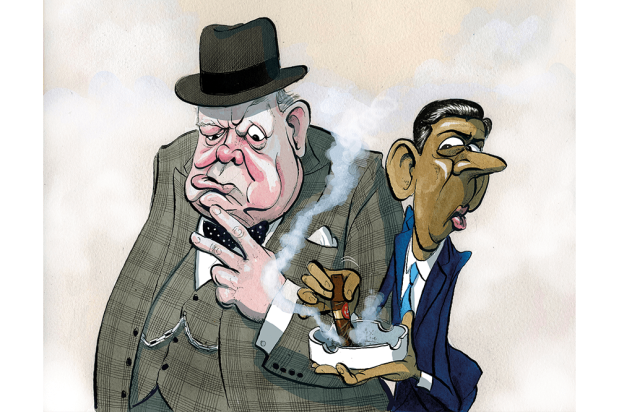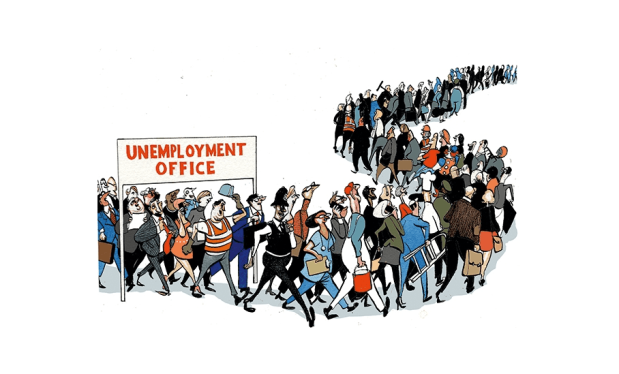As the SNP gathers for its conference in Aberdeen this weekend, Humza Yousaf faces a sea of trouble. But worst of all for the party leader, he faces disillusion with the ‘divisive’ independence project itself, as expressed by Lisa Cameron, MP for East Kilbride, who has (uniquely in SNP history) left the party for the Conservatives. Don’t expect many to follow her path.
However, she is not alone in rethinking her support for the SNP’s independence strategy. Others, like former Yes campaign strategist Stephen Noon, have been saying this week that the referendum route has become a dead end and that the SNP should revert to its older, incremental approach to advancing the economic powers of Holyrood.
But this has yet to penetrate the upper reaches of this deeply dysfunctional party. As conference launches tomorrow, the First Minister will double down on Nicola Sturgeon’s discredited idea of turning the general election in to a de facto referendum on independence. During his leadership campaign, Yousaf appeared to distance himself from Sturgeon’s proposal that, should the SNP win a majority of votes, it could legitimately sue for independence. Wiser heads in the party pointed out that the SNP has never won a majority of votes in any election, even in 2015 when it won all but three of Scotland’s 59 Westminster seats. Why hold a de facto referendum that the SNP is likely to lose?
However, instead of allowing this idea to die a natural death, Yousaf has chosen to advance an even more absurdist exercise in de facto constitutionalism. His motion to the SNP conference in Aberdeen tomorrow states that ‘if the SNP subsequently wins the most seats [my emphasis] at the general election in Scotland, the Scottish government is empowered to begin immediate negotiations with the UK government to give democratic effect to Scotland becoming an independent country’. Westminster will be presented with a ‘draft legal text on the transfer of powers’. Moreover, ‘representations’ will be made to Brussels for the purpose of allowing Scotland ‘to become an independent state of the EU’.
That this is nonsense hardly needs to be said. The SNP’s provisional government – for that is what it would be in Yousaf’s plan – would find it has no one to negotiate with. The UK government would rightly point out that in a general election, voters are choosing a government in Westminster, not issuing a declaration of independence. You can’t negotiate with an empty chair.
Nor would the European Union entertain representations from a phoney independent Scottish government. The only mandate Brussels would recognise is a ‘legal and legitimate’ referendum on independence authorised by Westminster, as Sturgeon always used to argue – and even then it would take up to a decade before the EU would allow Scotland to join.
These fantasy franchises are indicative of a party that is lost in a spiral of delusion
Yet Yousaf believes that he can turn next year’s general election into a legitimate referendum merely by stating on ‘page one, line one’ of the SNP manifesto that a vote for his party is a vote for independence. A better way to lose support could scarcely be imagined. Yousaf is effectively telling the Scottish people that a vote for the SNP is a vote to plunge the country into constitutional chaos and confrontation. An amendment to the independence debate tomorrow adds that if this general election route fails, the 2026 Scottish parliamentary election should then become the de facto referendum triggering negotiations.
These fantasy franchises are indicative of a party that is lost in a spiral of delusion. They have yet to realise that support for the SNP is draining away following the rout at the Rutherglen and Hamilton West by-election last week. The SNP has always been intentionally vague about the mechanics of independence – for very good reason. Setting up a hard border with the rest of the UK, losing UK financial transfers and establishing a new currency is a hard road any way you look at it. The insistence on rejoining the European Union is itself fraught with risk and division: many in the independence movement don’t want to leave one union only to join another.
As SNP president Mike Russell said this week, it is fatal for the party to get ‘mired in process’, in the awkward practicalities of leaving the UK. Nationalists must campaign on the bright side, painting a positive picture of the sunny uplands of independence and avoiding hard realities. Yet Yousaf has elected to place process centre stage – a process that leads nowhere.
If the SNP can’t make sense of its own independence policy, how can it expect anyone to vote for it? The nationalists are on course lose half their seats at the general election. If this comes to pass, whoever enters No. 10 next year – most likely Keir Starmer – will no doubt tell them the morning after: well, you’ve had your referendum, and you lost.
Indeed, it is safe to say that, for the first time in more than a decade, the integrity of the United Kingdom is no longer at risk. The independence project has been damaged beyond repair. The damage has been inflicted, not by the unionist parties or the Westminster government, but by the Scottish National party itself. Unionists, who will be sleeping easier in their beds this weekend, owe a debt of gratitude to Yousaf.
Got something to add? Join the discussion and comment below.
Get 10 issues for just $10
Subscribe to The Spectator Australia today for the next 10 magazine issues, plus full online access, for just $10.




















Comments
Don't miss out
Join the conversation with other Spectator Australia readers. Subscribe to leave a comment.
SUBSCRIBEAlready a subscriber? Log in